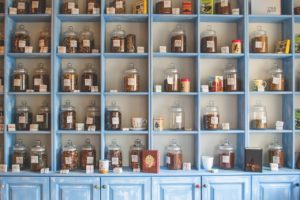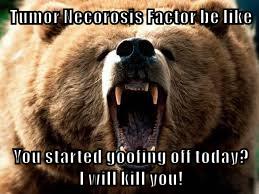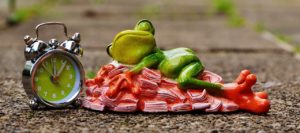
Who needs help falling asleep? *raises hand*
WARNING: Do not mix any sleep aids with alcohol – compounded drowsiness, depressed breathing or depressed heart rate
Sleep Aids
- Melatonin – the chemical your brain makes when it’s dark. Electronic light can interfere with your natural production of melatonin after the sun goes down.
- Valerian Root – claims to promote calming and relaxation
- 1st Generation Antihistamines – Diphenhydramine (Benadryl) or Doxylamine (Unisom; also in NyQuil). They have natural drowsy side effect, so using for the purpose of that side effect is a common practice.
- Rozerem – stimulates melatonin production in your brain
- Hypnotics – Ambien (zolpidem), Lunesta (eszopiclone). They seduce your brain to sleep in an unnatural way, thus they have high risk side effects (vivid dreams, sleep driving/walking/eating) and a high risk of dependence. The side effects are due to the fact that the medications may get you to a deeper level of sleep before the rest of your body is prepared. Your body has a natural paralysis process to ensure you don’t act out dreams in the REM cycle, but if your brain reaches REM before your body is paralyzed, you may do crazy things!
- Benzodiazepines – generic names end in -lam or -pam. Also have a risk of dependence and side effects (mainly “hangover” effect).
- Tricyclic Antidepressants – a symptom of depression is sleeping too much, but insomnia can be a symptom of depression. Also, insomnia can make you feel depressed – it’s a vicious cycle. In small doses, they work to help rebalance the brain chemicals and reset the sleep-wake cycle.
Where to Start
Use as natural a solution as possible that is effective. Physiological and neurological issues can lead to chronic insomnia that is not corrected by the most natural solutions, thus pharmaceuticals are needed – and that’s nothing to be ashamed of!
Sunlight stimulates your eyes and tells your brain to make serotonin. When the light is gone, and that stimulation stops, serotonin stops and melatonin replaces it. This is how we functioned and planned our days back in the “old days”.
Summertime brings on long days and lots of sunlight. Thus we may not sleep as long because the long daylight hours keep us awake. But this can also be the issue in the winter and for people who experience SAD (Seasonal Affective Disorder) – the shorter daylight doesn’t allow sufficient serotonin to be produced and we actually feel sad.
Analyzing your sleep patterns and knowing your options will allow you to have a productive conversation with your doctor – different medications are used depending on if you have trouble falling asleep or waking up halfway through sleep or both.
Audience Question
*Melatonin in nursing: your natural melatonin gets in breast milk and is thought to help baby’s sleep cycle (especially early on when baby’s sleep-wake cycle may be backwards because that’s how they rolled in the womb). Thus, if your natural melatonin gets into breast milk, then supplemented melatonin will get there too. The rationale is that if you’re not sleeping (despite the exhaustion of having a new baby), then you may not be making enough natural melatonin. If you’re going to take melatonin while breastfeeding, LOW dose is key to ensure the excess isn’t deposited in the breast milk to pass on to baby – 3 mg seems to be the highest recommended, and I agree. PLEASE do your own research and discuss it with a medical professional you trust rather than just taking my word for it!*
Connect with me
Support us on Patreon
*NEW* Join the Pharmacist Answers Podcast Community on Facebook
Subscribe: iTunes, Stitcher, GooglePlay, TuneIn Radio
Like the Facebook page
Music Credits: “Radio Martini” Kevin MacLeod (incompetech.com) Licensed under Creative Commons: By Attribution 3.0 http://creativecommons.org/licenses/by/3.0/




